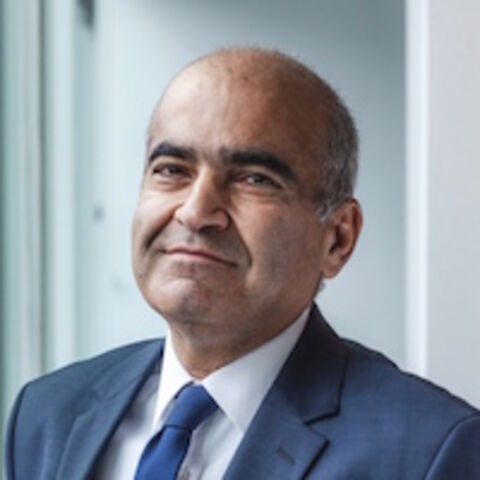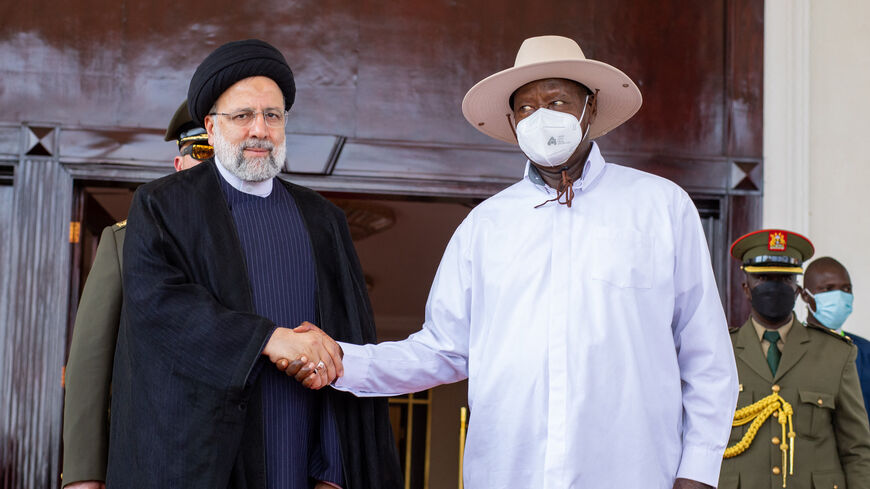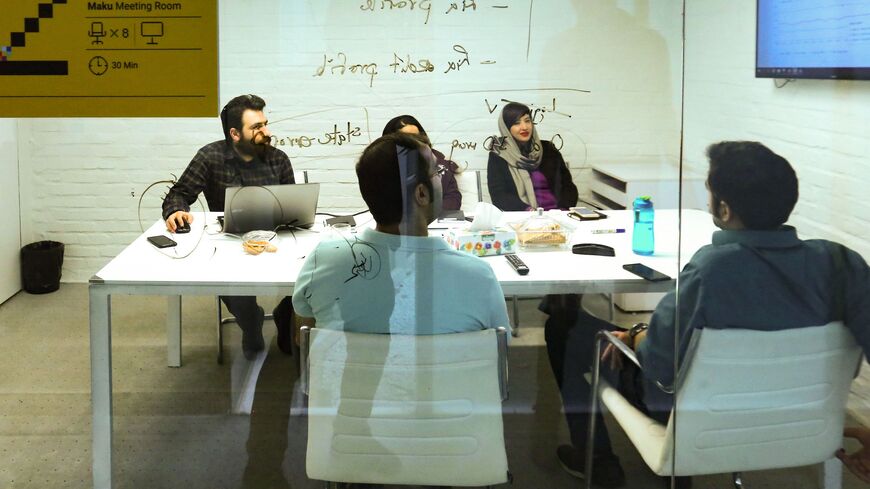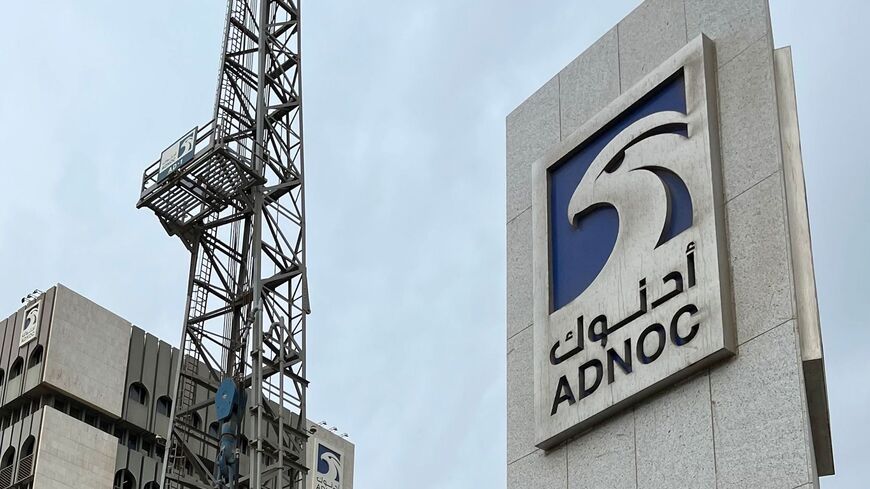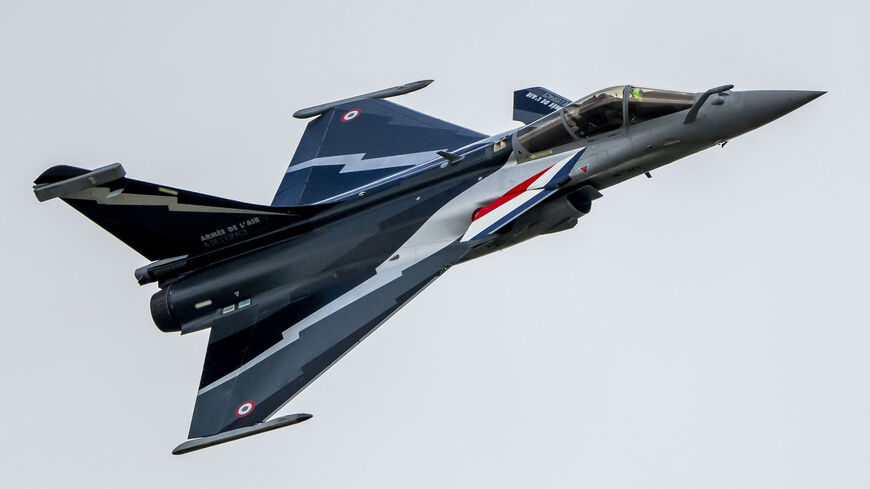In turnaround, Iran eyes economic opportunity in African ties
Al-Monitor Pro Members
Dr. Bijan Khajehpour
Managing Partner, Eurasian Nexus Partners, Vienna, Austria
Aug. 2, 2023
Tehran is diversifying its international ties and learning to secure small benefits from relationships instead of looking for big benefits from world powers. This was most recently illustrated by President Ebrahim Raisi’s visit to Africa in mid-July, a move the government termed as a "new beginning" in relations with the continent. Iran has never had a clear strategy on relations with Africa. Despite geographical and religious affinities, the continent was mainly neglected in Iran’s foreign policy, which was usually focused on relations with great powers. A proactive development of relations with selected African countries will present Tehran with opportunities to contain the impact of international sanctions and create economic and trading prospects. Tehran’s approach will be opportunistic and not strategic.
- For most of the first two decades after the 1979 Iranian Revolution, Iran’s Africa policy was driven by the so-called Islamic Propagation Organization that was focused on promoting Islamic values in Muslim-populated countries.
- The first real effort to invest in better relations with Africa emerged during former President Mahmoud Ahmadinejad’s era (2005-2013). Experts argue that Ahmadinejad’s policy of promoting ties with Africa and South America was a response to the US effort to isolate Iran internationally. Still, during the years that ensued under Hassan Rouhani’s presidency (2013-2021) the focus of the government was to reverse the anti-Western tenets of the previous government, achieve and later sustain the nuclear deal, also known as the Joint Comprehensive Plan of Action (JCPOA). Hence, African nations were neglected.
- Historically, Iran had close relations with post-apartheid South Africa as Tehran supported the anti-apartheid struggle very proactively. This relationship continues to be strong, especially as Tehran works more closely with the BRICS countries, of which South Africa is a member. However, for the rest of the continent, Tehran has had an erratic policy.
- On July 12, President Ebrahim Raisi started a three-country tour of Africa. He paid official visits to Kenya, Uganda and Zimbabwe and signed a number of memorandums and agreements. Greater attention to Africa would be in line with Raisi’s current foreign policy approach of pivoting away from the West.
- Leaving Tehran for Kenya, President Raisi underlined that Tehran’s “view on cooperation with Africa is based on synergy and relies on the human dignity of the people of this continent."
- Even though some experts have analyzed Tehran’s motivation behind a new Africa policy as a “search for allies,” there are other strong rationales for Iran to expand its relations with the continent.
- Piggybacking on its improved ties with Moscow and also benefiting from the climate of detente with Saudi Arabia, Tehran feels that it can deepen its relations with a number of African states as an extension of its neighborhood policy.
- Presently, Iran’s trade with Africa is negligible. However, a number of African countries offer good markets for diverse Iranian exports such as light industrial products, technical and engineering services in the energy sector, automobiles, petrochemicals, metals, etc.
- In addition, seen in the context of food security, closer ties with Africa could offer Tehran new sources of imports as well as opportunities for extraterritorial cultivation of agricultural products — a phenomenon that water-scarce Iran will require more and more in the coming decades.
- Diversity of trading partners will also offer opportunities to use some of the new partners as a hub to circumvent sanctions. Furthermore, expanding such trade will also create opportunities to establish joint banks that will allow Iran to de-dollarize its trade and circumvent some of the financial bottlenecks.
- Some of the African nations, especially those with closer ties to Russia and China, may also present opportunities for Iran to export arms and drones and other military equipment.
- Another sphere of interest could be related to Iran’s international position within organizations such as the United Nations or the International Atomic Energy Agency.
Scenario 1: Selected African nations help expand Iran’s export performance
Some political factions look at Turkey-Africa relations as a model for Iran and urge the government to expand trade, educational and cultural relations with selected countries. There is no doubt that considerations of Iran’s business community have a role in shaping the emerging foreign policy. At the same time, the growth of the export performance has empowered Iranian enterprises that are looking for new markets. These entities won’t be able to invest in new markets, but they are interested to develop trading opportunities. As such, the recent trip could open new doors for Iranian exporters and this would be the main outcome for Tehran. The country’s underlying merchant mentality as well as a proactive role by the Iran Chamber of Commerce will certainly lead to growing trade relations.
Scenario 2: African countries as strategic allies?
Some hard-line political forces in Iran view the new dynamic with Africa as an opportunity to identify new partners where the Iran-Russia axis could generate another ally like Syria. Their line of argumentation is more focused on how one can consolidate ties with Moscow rather than create a close ally on the continent. The scenario they are painting is far-fetched and could only apply to Zimbabwe — a sanctioned country where Iran has already invested heavily. However, none of the African nations could assume the significance that Syria has for Tehran with regards to regional security.
The most likely scenario is that Tehran will develop an opportunistic approach to some African countries, expecting multitiered benefits from its growing relations, focusing on economics, trade, banking and security — including food security. This means that the level of cooperation will depend on how far the African partner would be deterred by US sanctions. A sanctioned country like Zimbabwe would benefit from interacting and trading with Iran, but Kenya and Uganda may not be as keen to draw a response from Washington. Other African powers, such as South Africa, Nigeria and Egypt follow other dynamics in their relations. The key factor for Iran will be to diversify its international relations to an extent that it will become more challenging for Washington to further weaken and isolate Tehran. To achieve its goal, Tehran will have to use different incentives — economic, security, cultural, etc. — to attract diverse partners. In some cases, Tehran will be able to help the African side to manage Islamic extremism. In other instances, Iran could use its industrial, scientific and educational assets to define a new partnership. How these relations will develop depends on how continued US sanctions on Iran will shape the country’s trade and security needs.
Bijan Khajehpour is the managing partner at Eurasian Nexus Partners - eunepa.com - a Vienna-based international consulting firm. He also sits on the board of the Europe Middle East Research Group. He is considered an expert on geopolitics of energy and the Iranian economy and energy sector.
We're glad you're interested in this memo.
Memos are one of several features available only to PRO Expert members. Become a member to read the full memos and get access to all exclusive PRO content.

Already a Member? Sign in
The Middle East's Best Newsletters
Join over 50,000 readers who access our journalists dedicated newsletters, covering the top political, security, business and tech issues across the region each week.
Delivered straight to your inbox.
Free
What's included:
Free newsletters available:
- The Takeaway & Week in Review
- Middle East Minute (AM)
- Daily Briefing (PM)
- Business & Tech Briefing
- Security Briefing
- Gulf Briefing
- Israel Briefing
- Palestine Briefing
- Turkey Briefing
- Iraq Briefing
Premium Membership
Join the Middle East's most notable experts for premium memos, trend reports, live video Q&A, and intimate in-person events, each detailing exclusive insights on business and geopolitical trends shaping the region.
$25.00 / month
billed annually
$31.00 / month
billed monthly
What's included:
Memos - premium analytical writing: actionable insights on markets and geopolitics.
Live Video Q&A - Hear from our top journalists and regional experts.
Special Events - Intimate in-person events with business & political VIPs.
Trend Reports - Deep dive analysis on market updates.
We also offer team plans. Please send an email to pro.support@al-monitor.com and we'll onboard your team.
Already a Member? Sign in

